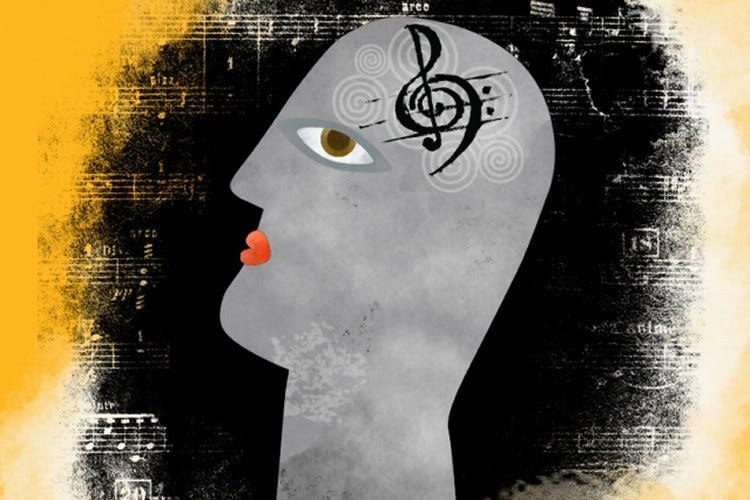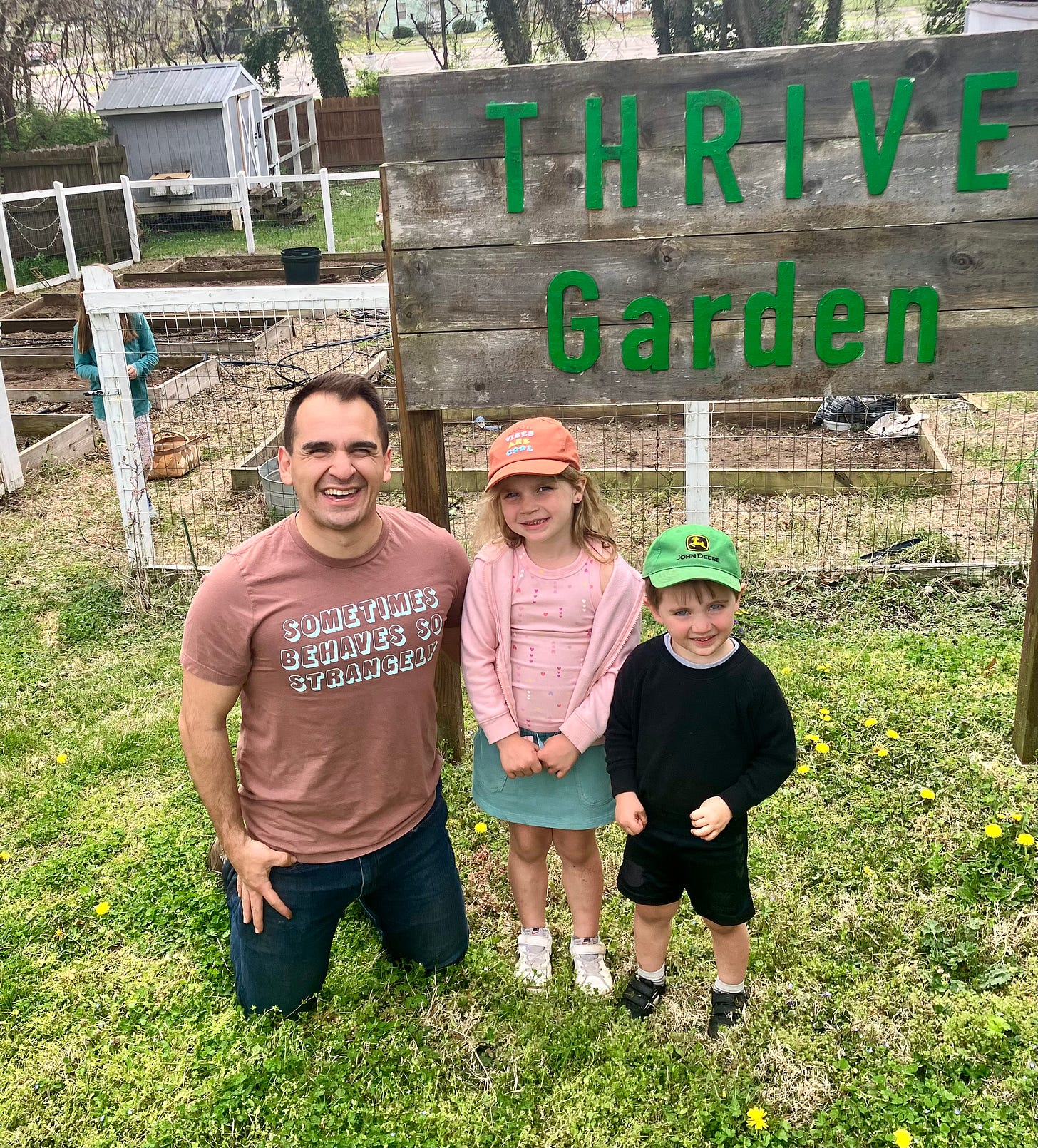When Speech Becomes Song
The auditory illusions of psychology professor Diana Deutsch.

The ‘Spring Cleaning’ offer to join my exclusive Attic Club for 25% off a yearly subscription expires in 10 days. Come play with us. If you want to join but can’t spend the cash, write me, and I’ll put you on my monthly comp subscriptions list.
I was showering off at the YMCA a few mornings ago when, instead of being met with the sight of an old dude in his birthday suit, my ears tingled with the sound of song. A few stalls over, a boy was repeating the same phrase over and over. “Let’s go home, let’s go,” he said. “Let’s go home, let’s go.”
The melody pinballed in my head, triggering my body to groove. I quickly started to make my own variations of the hook, adding in snare hits and bass fills1.
It all reminded me of a podcast episode about the speech-to-song illusion, discovered 30 years ago by psychology professor Diana Deutsch while recording the audio commentary to Musical Illusions and Paradoxes. Deutsch, who was born and educated in England, stepped away from the recorder to make herself a cup of tea. As she waited the few minutes for it to steep, she began humming along to a line from the introduction. “Sometimes behave so strangely. Sometimes behave so strangely…”
Her words had become music.
Afterward, Deutsch dedicated a series of experiments to understanding how words arranged without musicality in mind could transform into a jingle she couldn’t get out of her head.
Her website includes a full description of these experiments. Because I am not Josh Rosenberg (Educated Guesses) or any of you others who are fluent in scientific jargon, I will share only her conclusion, which is written (mostly) in English. The emphasis is my own.
“This illusion is in line with what philosophers and musicians have been arguing for centuries, that strong linkages must exist between speech and music. We are just beginning to determine the neural processes that are responsible for this striking perceptual transformation. However, the present experiments show that for a phrase to be heard as spoken or as sung, it does not need to have a set of physical properties that are unique to speech, or a different set of physical properties that are unique to song. Rather, we must conclude that, assuming the neural circuitries underlying speech and song are at some point distinct and separate, they can accept the same input but process the information in different ways so as to produce different outputs. As a further point, this illusion demonstrates a striking example of very rapid and highly specific perceptual reorganization, so showing an extreme form of short-term neural plasticity in the auditory system.”
A few years ago, Radiolab offered T-shirts bearing the phrase—“Sometimes behave so strangely”—to anyone who donated money. Naturally, I did. Because I find the description is fitting—or, at least, better than the other line of dialogue I’ve typically been associated with, from Silver Linings Playbook: “You say more inappropriate things than appropriate things.”

There are many other audio illusions out there, including the McGurk effect, related to speech and vision, and the popular Yanny or Laurel that some of you may remember going viral in 2018. (If you’re curious, I hear Laurel.)
One of my favorites is the binaural beat, which is formed when two tones of slightly different frequencies are played into each ear simultaneously. When you listen via headphones, the brain invents a third tone, equivalent to the difference between the others. It’s literally fricken awesome. I listen to a playlist of binaural beats on Spotify to write; if you need to do a focused activity but cannot work comfortably in silence, I suggest you try it.
Listen to “Musical Illusions,” the episode in which the speech-to-song illusion and other musical phenomena are discussed, on Radiolab’s website.
Before you leave, support my work by upgrading to a paid subscription for as little as $4.17/month ($50/year). You can also buy me a coffee, order a copy of my first story collection, or listen to my stories on YouTube and Spotify.
This is a common feature of my personality. Among my more popular invented jingles are the rap-like “Chillin’ all day like my name’s Bobby Flay / Chillin’ all day eatin’ peach flambé” and the rapid-fire, “Detonate the doodie, I’ma detonate the doodie / Detonate the doodie like my name’s Doug Flutie,” inspired by my 18-month-old’s grenade-like turds.





